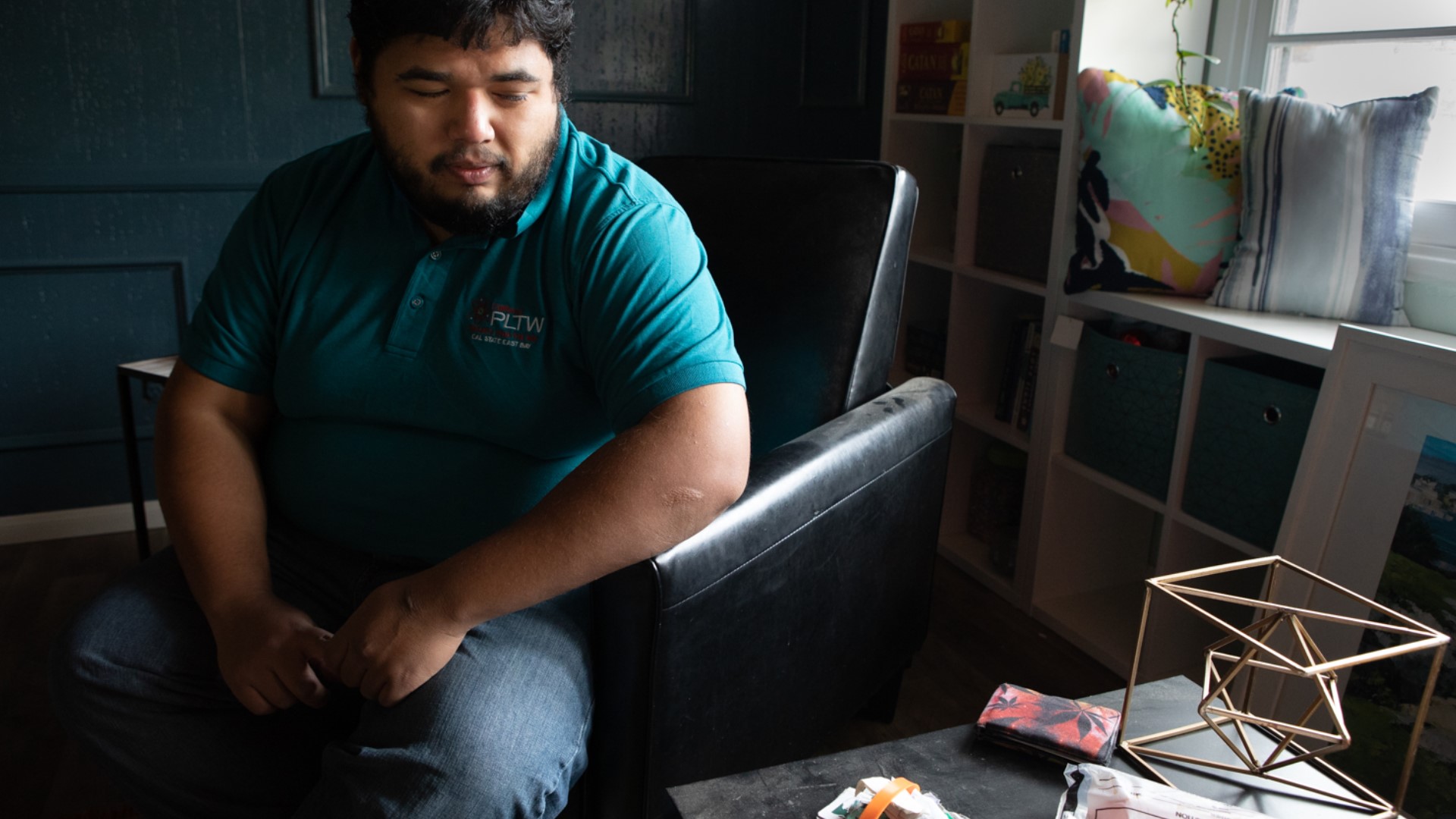SAN DIEGO COUNTY, Calif. — Two months after inewsource reported a spike in police calls, a lapse in mental healthcare and a suicide death at a COVID-19 isolation hotel, San Diego County shifted the operation of its sheltering program to a staffing agency for $30 million.
But problems at the Crowne Plaza hotel in Mission Valley appear to be no better today.
Hotel guests and employees told inewsource the program is mismanaged, staff aren’t properly trained and security guards harass those who are under a public health order to isolate. It’s all causing some to leave the hotel before they’re supposed to.
Records show the high volume of police calls to the Crowne Plaza also has continued, as have reports of suicide threats and overdoses.
“They’re shooting from the hip,” said Turquoise Teagle, a site coordinator at the hotel who works for the county’s contractor, Equus Workforce Solutions.
“I think the county should come in, revamp the program and get Equus out of there, honestly.”
Teagle, 35, said she was placed on paid administrative leave after repeatedly complaining to her supervisors about the poor care at the hotel. Among the problems she said she’s reported:
Guests don’t receive their medication on time and children have gone days without appropriate food.
Employees aren’t told how and when to coordinate with Telecare Corp., which the county pays to provide mental and behavioral health services.
Staff aren’t prepared to work with most of those who are isolating — people who are homeless and might be struggling with mental illness or substance-use disorders.
Another employee described similar conditions but fears being fired so inewsource agreed not to name them.
Neither Equus employee inewsource interviewed said they had seen county officials visit the hotel. County officials get their information from daily video meetings, where an Equus supervisor reads updates to faces on a computer screen.

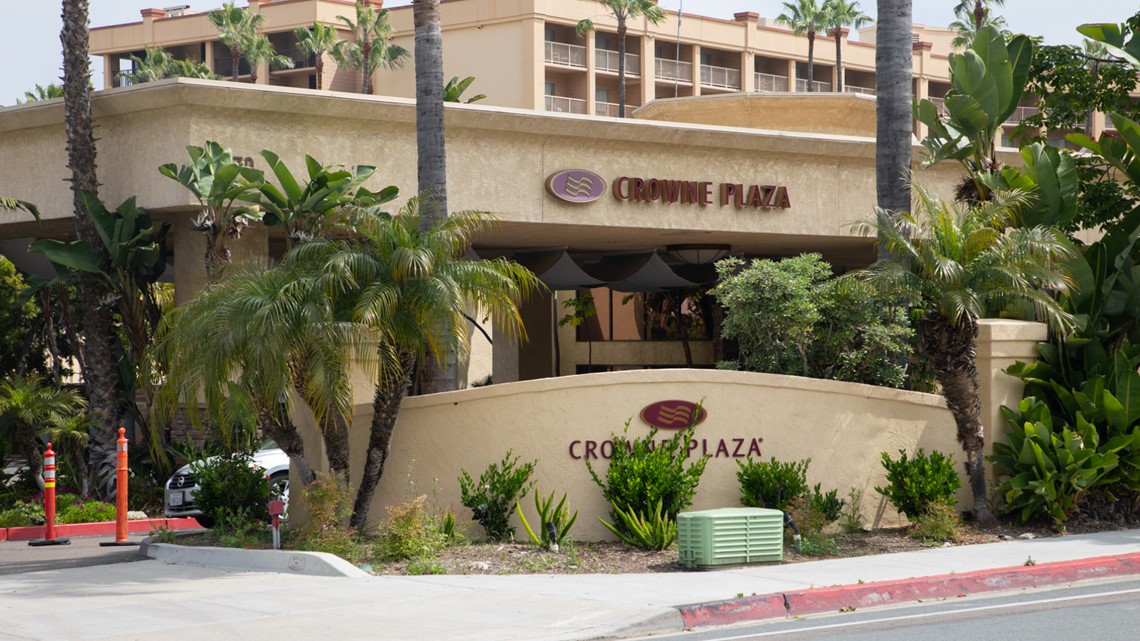
A former Crowne Plaza guest, William Morris, who stayed there in November with his wife after she tested positive for COVID-19, said a dispute about his service dog escalated to a security guard attempting to hit him with a chair.
“I wouldn’t put my worst enemy in a place like that,” Morris said, adding that security was his biggest issue. “They don’t have empathy for people, compassion for people and they’re a bunch of animals running wild.”
When the pandemic began last March, the county took over the Crowne Plaza and other hotels to temporarily house people who needed somewhere to stay. The goal was twofold: To isolate people who test positive or come in contact with the virus, and to protect people who are at-risk for developing severe illness.
The county has refused to identify all the facilities in use, citing privacy concerns for the people in isolation, but said about 950 rooms have been secured.
We want to hear from you:
Have you stayed or worked at a San Diego County public health hotel during the pandemic? You can tell us about your experience by emailing covid@inewsource.org.
County spokesperson Michael Workman said in emails to inewsource that officials are in daily communication with contractors, conduct site visits at least once a month and are notified of any serious incidents. He added that Equus has received “several positive comments from guests at Crowne Plaza” in satisfaction surveys.
As for the frequent police presence at the hotel, Workman said on-site security is supposed to “monitor any situations which may require law enforcement involvement.”
“Some of the individuals we have provided isolation for also have a high degree of behavioral health needs,” he said. “In addition, the impact of isolation and the challenges with addressing the pandemic often contribute to an increase in behavioral health symptoms.”
Despite that, Teagle said Equus never provided any mental health training and she had no idea what to expect when she started her job.
“I feel like speaking out on it will just bring more attention to it and maybe the county will be a little bit more hands on with everything that's going on,” Teagle said.
‘How do you not realize that?’
Early in the pandemic, county staff operating the Crowne Plaza became overwhelmed.
An employee overseeing operations sent an email March 26 to colleagues saying she was “pushing and begging and pleading for additional staff” to help with the workload, “and to provide adequate support to the folks in the hotels.”
Within a week, county officials changed an existing $13 million contract it had with Telecare, which had been providing mental health services to San Diegans in the legal system, to also help people in isolation.
But it didn't make a difference for 28-year-old Jose Angel Gomez-Camacho. He died by suicide at the Crowne Plaza three weeks later.
Gomez-Camacho was living on the streets, diagnosed with schizophrenia and addicted to crystal meth when county officials placed him at the hotel, according to his brother, Jorge Gomez.

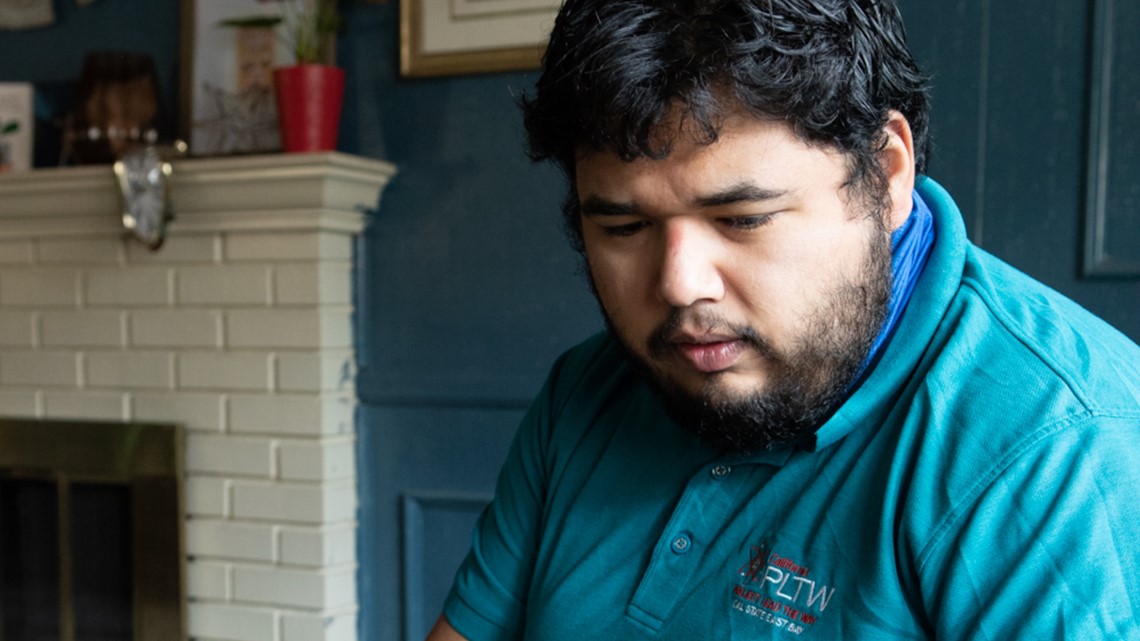
Gomez, 31, said he and his younger brother, Jose, grew up poor in San Diego County. They had a rough childhood, he said, and they followed different paths.
“My brother took more of a liking to the streets. I tried to live my life as best as I could,” Gomez said.
His brother struggled with addiction for years, and family members think that’s what led to his mental illness. The last time family saw him was on his birthday in early April. He tested positive for the virus soon after and was sent to the Crowne Plaza.
County employees are supposed to check on each guest once a day. But after Jose tested negative for the virus, “it was presumed he left the hotel,” county medical examiner records show.
Five days passed before hotel staff found him on April 23.
“How do you not realize that there’s somebody dead in your hotel? How do you not realize that?” Gomez said.
He believes San Diego County should bear some responsibility for what happened to his brother.
If he had been given the care he needed, Gomez said, “we wouldn’t be having this conversation right now.”

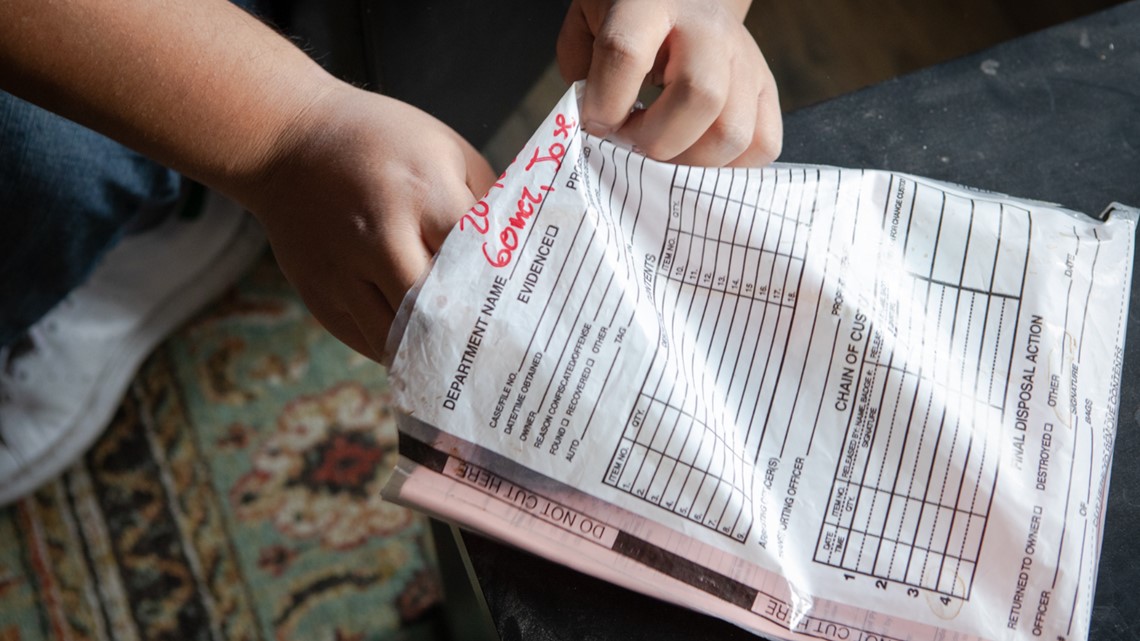
Workman, the county spokesperson, said he could not comment on the specifics of the case because of privacy concerns but explained “there was an incident where a guest was able to gain reentry to a room after check-out.” Staff didn’t know the guest was there because they thought the room was empty, he said.
The medical examiner’s records on Jose’s death weren’t public while the county investigated what happened, but they were recently released to inewsource. The county would not answer questions about its investigation.
“It wasn't easy for me to process this,” Gomez said. “There’s times where I blame myself and I have to stop doing it because it’s getting nowhere.”
A $30 million contract
Two months after Jose’s death, San Diego County asked Equus to run its COVID-19 sheltering program. Officials realized the staffing agency can “perform the services more economically and efficiently than the county,” according to the contract signed on July 1.
Equus is responsible for providing guests with three meals a day, laundry services, on-site security and medications, relying on several subcontractors to get the job done. Equus employees also arrange transportation to and from the hotel, screen people to assess their needs for healthcare and government benefits, and work on discharge plans, either into permanent housing or another shelter.
The county paid Equus $10.2 million in 2020. If services are needed through the end of this year, it will cost an additional $20 million.
While Equus oversees the daily operations, Telecare is still responsible for providing mental and behavioral health services at the county-run hotels. Since August, Telecare has received more than $350,000 for its work at the hotels through funding the county received under the federal CARES Act.
Suicide prevention help:
If you are having thoughts of suicide, you can call the National Suicide Prevention Lifeline at (800) 273-8255 or the San Diego Access and Crisis Line at (888) 724-7240. Other resources are available here.
Public records show Telecare has a history of not fulfilling its duties. In the past six years, the company had to issue corrective action plans for at least four contracts it held in California.
That includes an incident in 2015, in which Telecare decided not to bill Los Angeles County for $153,000 in services it was supposed to have provided. The company said “leadership vacancies” had caused “errors and omissions in documentation.”
And in 2017, multiple patients suffered serious injuries at a rehabilitation center in Long Beach while under Telecare’s supervision. The company said it would address the issues by randomly observing staff.
Telecare would not comment for this story.
When guests arrive at the Crowne Plaza, they receive a pamphlet instructing them to call Telecare if they’re feeling “anxious, sad or lonely,” along with a list of phone numbers for emotional support and crisis response lines.
Together, Equus and Telecare can address any situation that may arise, said Nicole Ganier, vice president of operations for the western region of Equus.
“We recognize the complex nature of the population we serve as part of this program and have implemented policies and trained staff to assist them as effectively as possible,” Ganier said in an email.
Addressing emergencies
Teagle, the hotel site coordinator, said she loves her job, but Equus is overlooking opportunities to improve. The program is disorganized, staff aren’t adequately trained and guests who need help aren’t getting it, she said.
She started working with Equus when the company was mass hiring in early December because of a COVID-19 outbreak at the San Diego Convention Center, where the city has an emergency homeless shelter. While she had experience working with people who are homeless, Teagle said she was unprepared for what she was thrown into at the Crowne Plaza.
As of Feb. 12, about 300 people were isolating at the hotel.
Some are first responders and medical professionals who need to be isolated from their families because they’ve tested positive for the virus or have symptoms, but many are people without homes. Teagle said there are too many to adequately meet all of their needs.
The training Teagle said she received from Equus was minimal. She said the main message was: “Don’t be a jerk.”


There is no designated training coordinator, she said. Instead, workers are told to shadow each other, leading to inconsistent habits and procedures. Equus also doesn’t explain to new staff exactly what Telecare’s role is, other than that it provides resources for people in need.
Teagle said she was the first point of contact for many of the residents yet nobody taught her how to look for signs of mental illness, drug addiction or other issues that could come up. While staff are able to help with a range of problems, she said sometimes they just have to tell residents: “If you’re feeling really bad, you’ve got to call 911.”
San Diego police records show that after Equus and Telecare took over hotel operations for the county, calls from the Crowne Plaza continued to flood in.
Police have responded to more than 230 calls to the hotel since the pandemic began — three times more than the average number of calls seen in the prior two years. About a quarter of the calls were related to mental health, including suicide attempts and threats.
Summaries of the calls detailed 16 incidents where guests expressed suicidal thoughts. Some of the descriptions mentioned that residents were unhappy with staff or refused to leave the hotel after being discharged.
A San Diego police spokesperson confirmed two deaths have occurred at the hotel in the past two months, but details about those incidents are not yet available. A lieutenant who oversees patrols in the area declined to comment for this story.
‘I wasn’t breaking any rules’
Guests at the hotel are under a public health order, signed by county Public Health Officer Dr. Wilma Wooten, which requires them to isolate for at least 10 days. They aren’t supposed to leave the hotel before then except for medical care.
But Teagle said that’s not enforced. Security allows people to come and go, she said, and it’s not uncommon for an entire day to pass before Equus realizes someone left early. She’s also noticed the guards get in confrontations and “constantly have issues” with guests.
Two San Diegans who have stayed at the county’s public health hotels told inewsource they have faced harassment from the security guards.
Morris, 60, lives with his wife, Martha, and his service dog, Mini-Me, in their gold Mitsubishi Outlander. He said they were offered a room in the Crowne Plaza after his wife tested positive for COVID-19 in November.

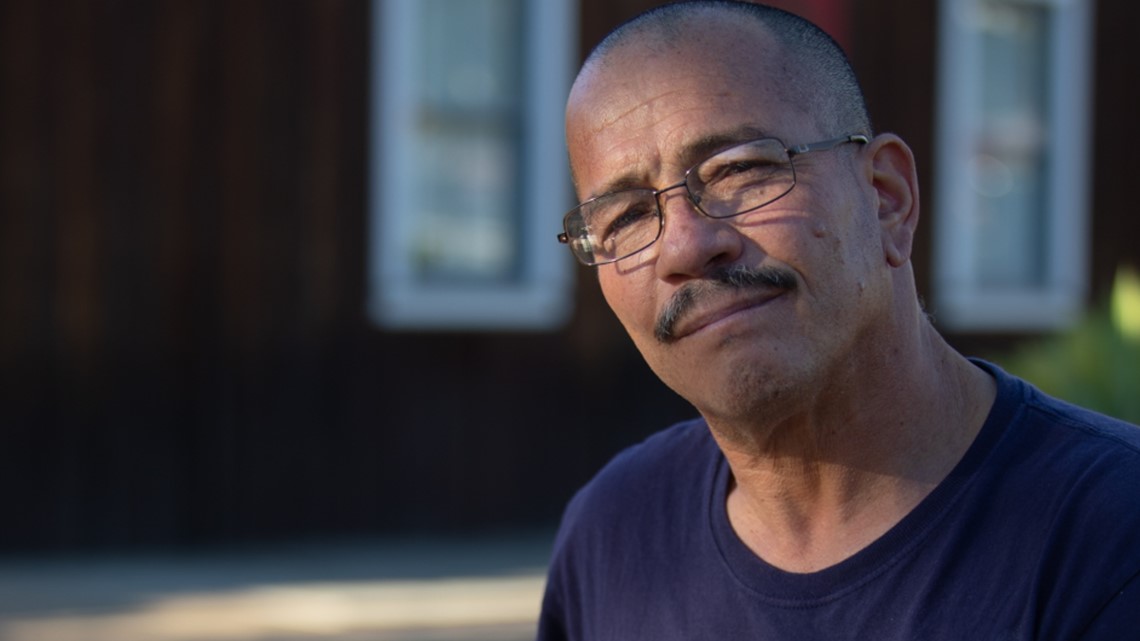
Within an hour, a security guard accosted him about leashing Mini-Me, who helps with his balance and mobility, he said.
Morris explained his dog doesn’t wear a leash because he could trip over it, and the front desk already had the paperwork. The guard “rudely walked away,” he said.
A document listing rules for guests at the hotel shows a leash isn’t required if it impedes the service animal’s ability to assist its owner.
Over nine days, Morris said the guards continued to berate him about the leash every time he went outside with Mini-Me.
“I don’t know where they’re getting these guys from. I don’t know, are they pulling them off the street?” Morris said. “Because these guys are coming in … and doing a very good job of acting like thugs.”
Equus signed a subcontract with AllState Security Services to run security at the Crowne Plaza. The San Diego-based agency’s website says it provides private guards at construction sites, hospitals, schools, financial institutions and warehouses throughout California.
Ganier, the Equus representative, said all the companies they work with are vetted through background checks and pre-approved by the county. She wouldn’t provide a full list of subcontractors or any details about their publicly funded work at the hotel, telling inewsource to ask the county for more information. The county did not provide a list of subcontractors either.
AllState didn’t respond to requests for comment.
Morris said he reached his breaking point when a guard tried to hit him with a chair and two other guards intervened. Meanwhile, his wife was suffering from severe COVID-19 symptoms inside their room. Instead of focusing on her recovery, he said he was “busy fighting the wolves off.”
He filed a complaint with Equus and left the hotel with more than a week remaining in his wife’s stay. Equus and the county wouldn’t comment on Morris’ claims or any other allegations about the security guards.
He said he wished he could have stayed longer but feared one of the guards would try to hurt him.

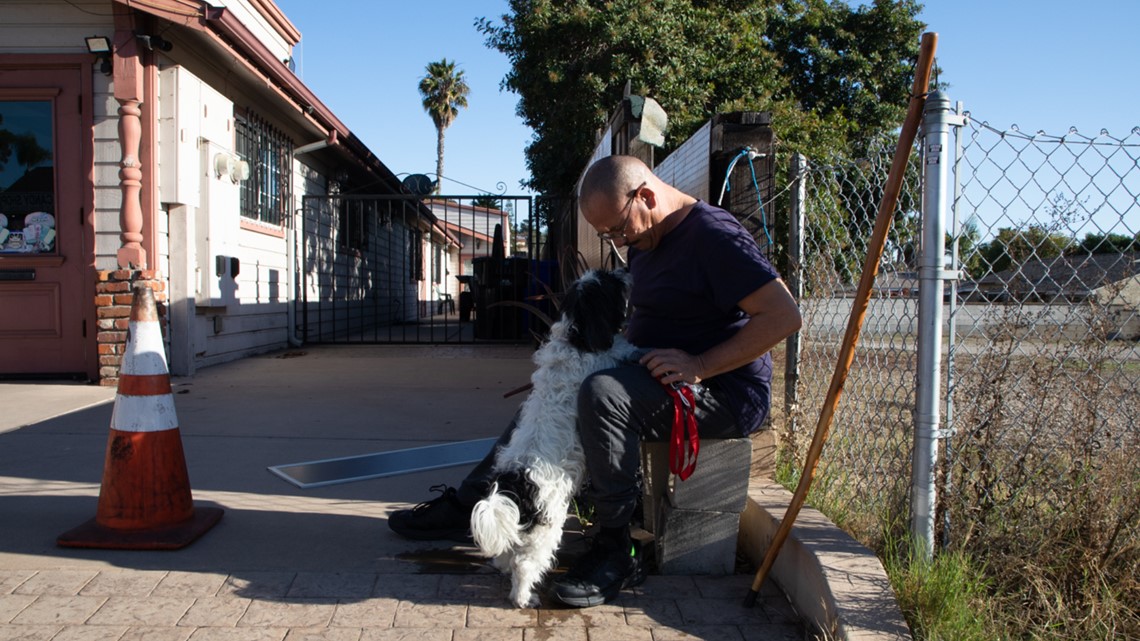
“They were just on me every day, and every single day was a new situation with a new security guard, with a new issue of him proving himself that he was more of a man than I was, and I had to follow the rules,” he said.
“The problem was, they had no idea I wasn’t breaking any rules.”
‘These people need help’
As a site coordinator during the morning shift, Teagle said her responsibilities were to deliver breakfast and lunch, as well as tend to any other needs of those in isolation. That could mean coordinating a medical appointment or grocery pickups.
While caring for the residents, she said she started to notice a lack of empathy among Equus employees.
One day, she said a man who was formerly incarcerated called the front desk asking for an Android phone charger, saying the terms of his release required he keep his phone charged.
According to Teagle, her supervisor told her it didn’t matter — the man could go to jail. She said she wound up finding a charger for him.
The problems she described went beyond empathy. Medications weren’t distributed when they should have been, she said, causing some people to leave the hotel early. Medicine would sit in the hotel for days before workers delivered them to the guests, who were instructed not to leave their rooms because it could expose others to COVID-19.
Plus, nurses notified staff that toddlers at the hotel were losing weight because they weren’t getting adequate nutrition, Teagle said. Equus planned to continue feeding toddlers milk or menu items such as quesadillas and lettuce wraps until she reached out to the food vendor to provide meals more appropriate for children — chicken and wild rice with sweet potatoes and applesauce, which are easier for toddlers to consume.
It was just a matter of communication, she said.
Teagle said she hasn’t been to the Crowne Plaza since she was placed on leave earlier this month. She felt compelled to speak out because “these people need help.”
“That could be my family,” she said.
inewsource is a nonprofit, independently funded newsroom that produces impactful investigative and accountability journalism in San Diego County. Learn more at inewsource.org.

